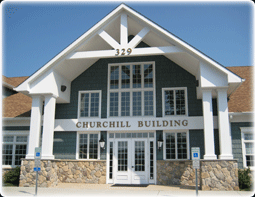Dental Update
Call Giegerich Orthodontics at 609.652.1900 or fill out our online Request an Appointment form to schedule a complimentary consultation with us.
Symptoms and Possible Complications of Impacted Wisdom Teeth
Our wisdom teeth are the last batch of adult teeth to grow. When we reach a certain age in our adulthood, these molars emerge at the back of our mouth. Most people have four wisdom teeth two each for the top and bottom.
However, they can cause dental problems for some people, resulting in pain, discomfort and vulnerability to serious complications. Since they were the last ones to emerge, some wisdom teeth don't have enough room to grow normally. Some people may also have problems adjusting to these newly grown teeth, causing them to bite a portion of the inside walls of their cheeks at the back of the mouth.
Most people are enticed to remove wisdom teeth. In fact, some dentists opt to remove them to prevent future complications.
The usual symptoms of impacted wisdom teeth include pain and discomfort, which may be accompanied by headache. There may also be redness and swelling of the gums; worse, the gums are tender or bleeding. Sometimes, the jaws may also hurt and become swollen. Damage or trauma to the wisdom teeth could cause bad breath and an unpleasant taste in the mouth as well as the likelihood of tooth decay.
Impacted wisdom teeth may damage the neighboring molars, making them vulnerable to infection. The growth of the wisdom teeth may also cause crowding of the other teeth. This may also result in gum disease due to the difficulty of cleaning the impacted wisdom teeth.
If you experience discomfort, swelling or any symptom that may have to do with your wisdom teeth, see a dentist.
Archive
- 2013-03-21
- 2013-04-21
- 2013-05-21
- 2013-06-21
- 2013-07-21
- 2013-08-21
- 2013-09-21
- 2013-10-21
- 2013-11-21
- 2013-12-21
- 2014-01-21
- 2014-02-21
- 2014-03-21
- 2014-04-21
- 2014-05-21
- 2014-06-21
- 2014-07-21
- 2014-08-21
- 2014-09-21
- 2014-10-21
- 2014-11-21
- 2014-12-21
- 2015-01-21
- 2015-02-21
- 2015-03-21
- 2015-04-21
- 2015-05-21
- 2015-06-21
- 2015-07-21
- 2015-08-21
- 2015-09-21
- 2015-10-21
- 2015-11-21
- 2015-12-21
- 2016-01-21
- 2016-02-21
- 2016-03-21
- 2016-04-21
- 2016-05-21
- 2016-06-21
- 2016-07-21
- 2016-08-21
- 2016-09-21
- 2016-10-21
- 2016-11-21
- 2016-12-21
- 2017-01-21
- 2017-02-21
- 2017-03-21
- 2017-04-21
- 2017-05-21
- 2017-06-21
- 2017-07-21
- 2017-08-21
- 2017-09-21
- 2017-10-21

















